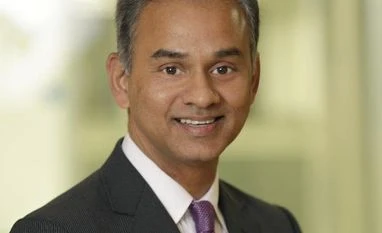Tiger Tyagarajan, chief executive officer (CEO) of global professional services firm Genpact, is confident of a smooth 2018. Be it the future of his business or the ever-changing geopolitical situation in US and its global impact, Tyagarajan believes his company would be able to sail through it all, he tells Karan Choudhury in an interview. Edited excerpts:
How is the customer demand for large deals considering that there was a lull in such activities last year?
Not for us. If you see our earnings call for Q1, Q2 and Q3, we got a great first three quarters. It's all been driven by a lot of our customers wanting to try digital transformation. As a result, they need to find a way to run their businesses differently. They need to re-imagine their businesses. So it is being driven by transformational services. Our deals have actually got larger and more complex.
Do you think the regulatory changes being mulled in the US will have huge ramifications for the information technology (IT) and business process management (BPM) sector in India?
It does not have an impact on us as our dependence on visas is limited as we deliver our services from operating centres whether in India or 23 other countries across the globe. We are 4,000-plus people in the US in operating centres which have been there for 10-20 years. These are local operating people; for us, visa dependence is not material and therefore such changes do not impact us directly.
Other regulatory changes, for example in banking, would obviously require banks to change the way they deal with those regulations. As they loosen up, I think they will have the option to grow more; some of the opportunities and work we do in the regulatory side would shift to the growth side. Regulatory changes in the industry we serve would change the solutions we provide.
Have your clients begun spending on discretionary IT work?
We are not dependent on discretionary IT work. Our business is digital interventions to change the way the business runs and obviously there is enough research that shows that companies are actually taking money they are spending on traditional IT and moving it to digital. Some of that is the kind of work we are doing. We do not depend as much as some of the IT companies on discretionary IT. For us it is about consulting and transformation services, leveraging digital and then actually running managed services for them.
What sort of impact would artificial intelligence (AI) have on manpower demands?
The same amount of work can be done with lesser people, but more new types of work needs to be done. So that is driving our growth.
How much of re-skilling are you doing?
A lot, but we’ve been doing re-skilling for over 20 years. When we first hired people to do mortgage processing, they did not know mortgages, or when we brought in manpower to monitor data coming in from engines, they did not know what data was coming in. We trained people to do things that they did not know anything about. Now we are training people to learn AI, machine learning, robotics; it is just new programmes that teach them new things and the raw material, the people, are eager to learn. It is part of the way we run the company.
What do you think of India’s BPO policy? Can BPOs be successfully run from tier-II, tier-III and towns in the rest of India?
I think if you define BPO as managing processes for other enterprises, then the answer is yes. India as an economy itself is going to grow. So delivery of services to Indian enterprises from cost-effective, high-talent tier-II, tier-III and beyond cities is a great opportunity.
Whether those same towns are going to be the ones that deliver services to global customers is a big question mark. I don’t know. I would argue that those types of roles are getting done more by machines and the work that is being done requires re-skilling and up-skilling, which more traditional tier-I and tier-II cities are geared to.
What do you expect for your sector in the upcoming Union Budget?
I do not believe we should run our business or our industry based on Budget wish lists. I think an important thing from the Budget perspective for the country is how the does the government, and all of us citizens and ecosystem players, actually continue to help the country grow.
Unlock 30+ premium stories daily hand-picked by our editors, across devices on browser and app.
Pick your 5 favourite companies, get a daily email with all news updates on them.
Full access to our intuitive epaper - clip, save, share articles from any device; newspaper archives from 2006.
Preferential invites to Business Standard events.
Curated newsletters on markets, personal finance, policy & politics, start-ups, technology, and more.
)